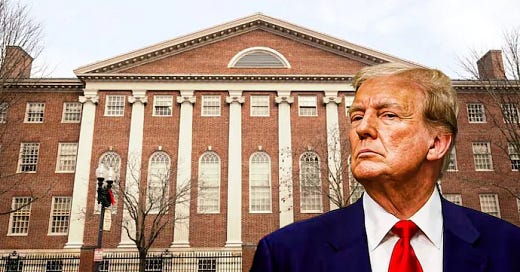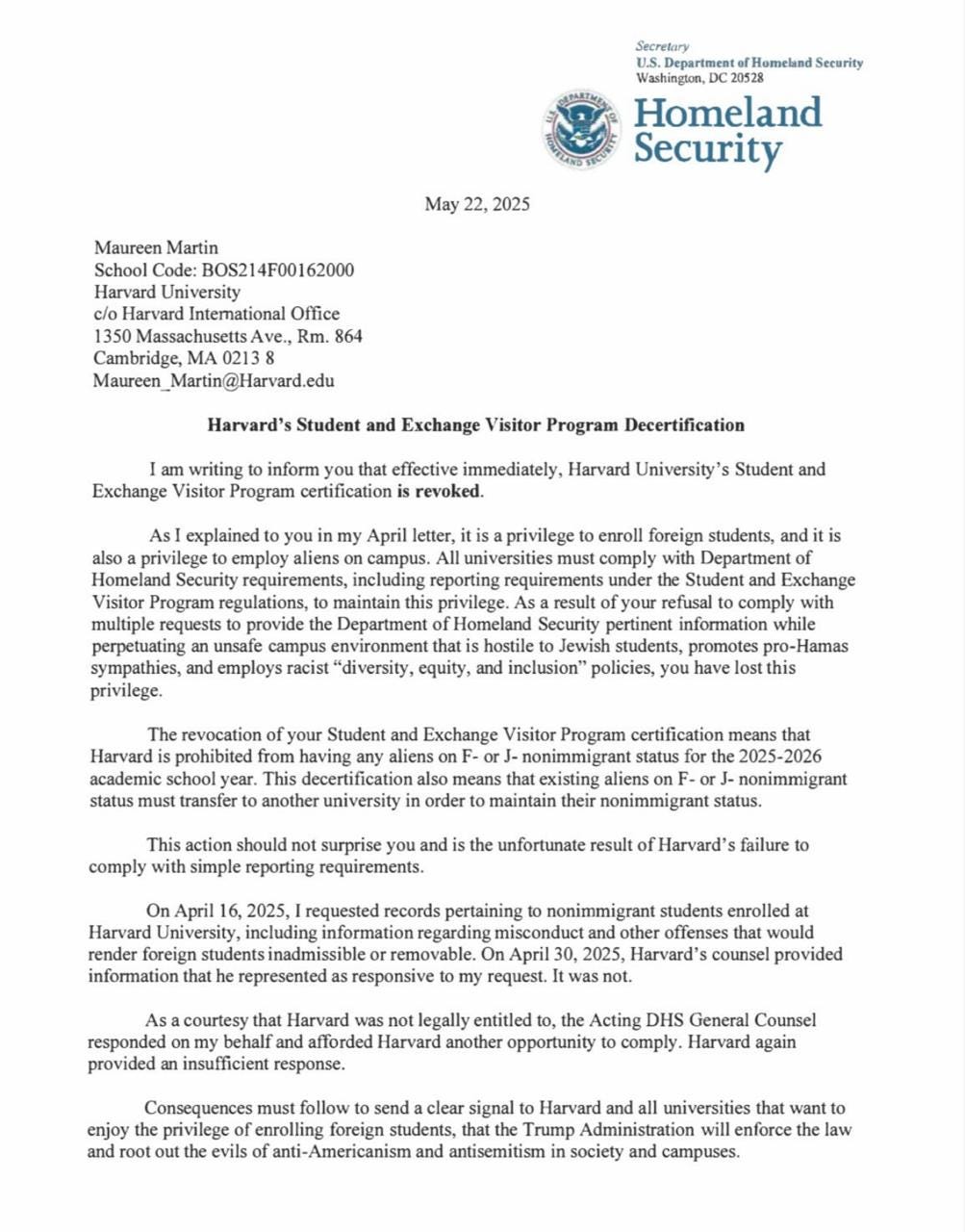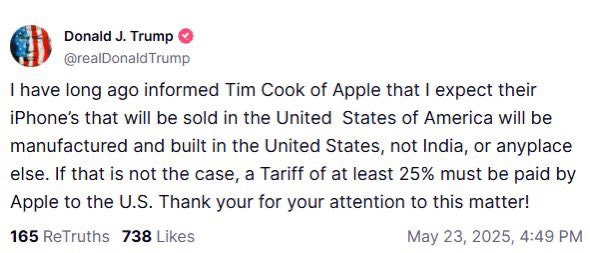Harvard Visa Ban: Indian Students Caught in the Crossfire of Trump’s Immigration Crackdown
Trump’s visa ban on Harvard leaves nearly 800 Indian students facing deportation, disrupting academic futures and straining U.S.-India educational ties
Have you checked out our app yet? Download it now to get the same sharp analyses you love.
Market Watch
At close, the Sensex was up 769.09 points or 0.95 percent at 81,721.08, and the Nifty was up 243.45 points or 0.99 percent at 24,853.15.
About 2238 shares advanced, 1557 shares declined, and 152 shares unchanged while India VIX stood at 0.06%.
ICYMI
⚓❌ Bangladesh cancelled a ₹180 crore contract with an Indian defence shipyard, escalating regional tensions.
💸🛑 IMF defended its bailout to Pakistan just days after India questioned the funding amid terror concerns.
🧓🔥 Muhammad Yunus threatens to resign as Dhaka braces for possible fresh protests.
✈️🚫 Pakistan denied Indigo pilots airspace access during a turbulence-hit Delhi-Srinagar flight with 220 passengers.
🎓📉 Canada slashed Indian student permits by 31%, raising concerns in India’s education migration sector.
Harvard Visa Ban
The Trump administration has stripped Harvard University of its ability to enroll international students, sending shockwaves through academia and upending the futures of nearly 6,800 students—among them, 788 from India.
The decision, enacted through the revocation of Harvard’s certification under the Student and Exchange Visitor Program (SEVP), marks a historic rupture between the U.S. federal government and one of its most prestigious academic institutions.
A Sudden Shock
The Department of Homeland Security, led by Secretary Kristi Noem, justified the action by accusing Harvard of withholding records on international students, promoting pro-Hamas sympathies, and enforcing discriminatory diversity and inclusion policies.
Harvard, in response, has called the action “unlawful” and a direct attack on its academic integrity and mission.
The impact has been immediate and devastating. Students on F-1 visas are being forced to either transfer to other SEVP-certified institutions or risk losing their legal status.
For Indian students—who make up one of Harvard’s largest international cohorts—this sudden uncertainty is more than administrative inconvenience; it threatens years of academic planning, financial investment, and personal sacrifice.
Indian Dreams, American Nightmares
With 788 students and scholars from India currently enrolled across Harvard’s schools, the visa ban strikes at the heart of a vibrant and vital academic exchange. These students, many pursuing long-term graduate and doctoral research, now face the near-impossible task of relocating their studies mid-course.
“This is not just about visas,” says Aarti Mehra, a doctoral student from Mumbai. “It’s about our lives, our work, and the future we came here to build. Transferring mid-research is not an option for many of us.”
For India, the implications go far beyond student hardship. Indian students contribute over $9 billion annually to the U.S. economy.
They are also key to fostering academic collaborations, technological innovation, and stronger U.S.-India relations. As such, the ban delivers not just a bureaucratic blow but a diplomatic and cultural one.
A Chilling Message
Community leaders and education advocates have condemned the administration’s action as politically charged and vindictive.
The additional demand that Harvard submit protest footage and disciplinary records for international students has been particularly alarming. Indian-American groups see it as a blatant attempt to suppress campus activism, infringing upon civil liberties and academic freedom.
“This sends a chilling message not just to Harvard students, but to every international scholar in America: your place here is conditional, your voice can be punished,” said Dr. Ananya Patel, a policy fellow at a Washington-based think tank on U.S.-India relations.
A System Under Siege
This isn’t the first confrontation between the Trump administration and elite academic institutions.
The administration has previously attempted to freeze billions in federal research grants and openly criticized universities for their political stances. But never before has it weaponized student visas on such a scale.
Experts agree the move is legally questionable and ripe for challenge. “Visa revocations of this kind are virtually unheard of,” notes immigration attorney Rajan Shukla. “It’s legally shaky and procedurally aggressive. I expect it will not survive court scrutiny.”
The Road Ahead
Harvard has 72 hours to comply with the government’s demands, which include handing over sensitive student information.
It has instead vowed to resist and protect its students. Legal challenges are already being drafted, and a coalition of universities may soon join Harvard in pushing back.
Meanwhile, countries like Canada and the UK are watching closely—and likely preparing to welcome the disillusioned talent. If the U.S. chooses to close its doors, others are more than willing to open theirs.
Tweet du jour
Another tariff threat
Hi, I’m Aniket Mishra, the editor of this newsletter. I’d love to hear some feedback. WhatsApp me directly and tell me what you think.




I respect the opinion of people who had not read the documents of Harvard vs US on F-1 and J-1 visa programs, and/or argue from a standing of Free Speech and Academic Freedom. But I read the Lawsuit and I came out with a different impression. Harvard is misstating and misinterpreting the Administration and what happened, as inferred from the Exhibits, the Lawsuit and the request of a restraining order. It seems Harvard assumed too much and erroneously so, and its legal counsel might have too. And they did not appealed in time and manner what they complain about now, and that might not or should not fly in Court. I have a Post of my analysis and comments of those documents, but, I am not a lawyer:
https://federicosotodelalba.substack.com/p/on-harvard-versus-united-states?r=4up0lp